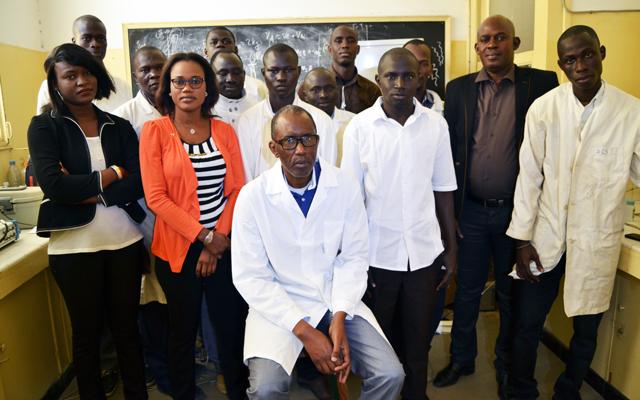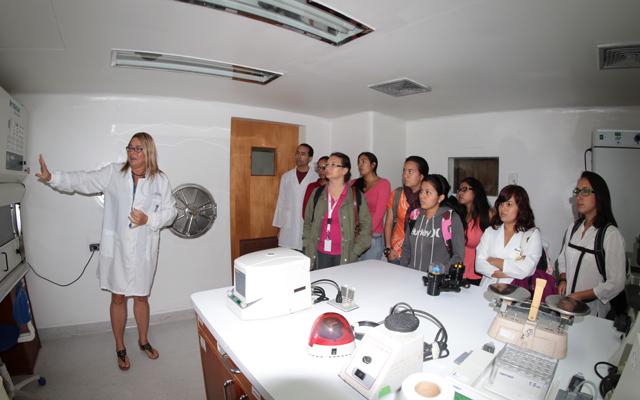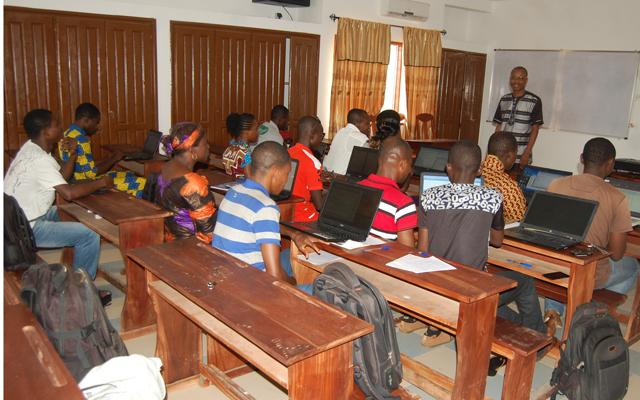Over 40 outstanding scientists from developing countries will be in Trieste from 18-22 April for a high-energy event called "TWAS Research Grants Conference - Shaping Careers in Science". They are past recipients of a TWAS research grant, which TWAS offers to individual scientists, groups and consortia to help equip and supply laboratories and support publications.
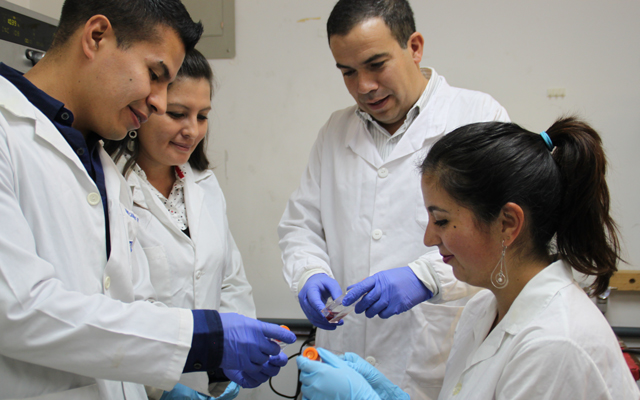 The scientists come from 26 nations in Africa, Asia and South America - including Sudan, Mali, Senegal, Nigeria, Chile, Argentina, Sri Lanka, Uzbekistan and Nepal. They will meet at TWAS headquarters to report on how the TWAS intervention impacted on their scientific investigations. They are experts in fields such as biology/biochemistry, experimental physics, pure and applied mathematics and chemistry. Grantees will discuss the hurdles they have encountered in their professional lives and the role the TWAS grant has had in shaping their careers, enabling their discoveries, and building new collaborations. Women account for 52% of the conference participants.
The scientists come from 26 nations in Africa, Asia and South America - including Sudan, Mali, Senegal, Nigeria, Chile, Argentina, Sri Lanka, Uzbekistan and Nepal. They will meet at TWAS headquarters to report on how the TWAS intervention impacted on their scientific investigations. They are experts in fields such as biology/biochemistry, experimental physics, pure and applied mathematics and chemistry. Grantees will discuss the hurdles they have encountered in their professional lives and the role the TWAS grant has had in shaping their careers, enabling their discoveries, and building new collaborations. Women account for 52% of the conference participants.
The pioneering research grants programme has historically been a key in TWAS's mission to build scientific strength in the developing world. Since 1986, TWAS has awarded more than 2,300 grants totaling USD 16.6 million. Swedish International Development Cooperation Agency (SIDA) began contributing core funding in 1991 and still does today.
"Over the course of many years, TWAS and SIDA have supported hundreds of laboratories in the developing world," said TWAS Executive Director Romain Murenzi. "Grant by grant, this partnership has built basic science capacity at universities and research centres where scientists are working to improve health and food production, to protect water supplies, and to support innovation in manufacturing. "At our meeting next week, we're going to explore the historic impact of the research grants programme – and explore how we can keep it strong and effective for the future."
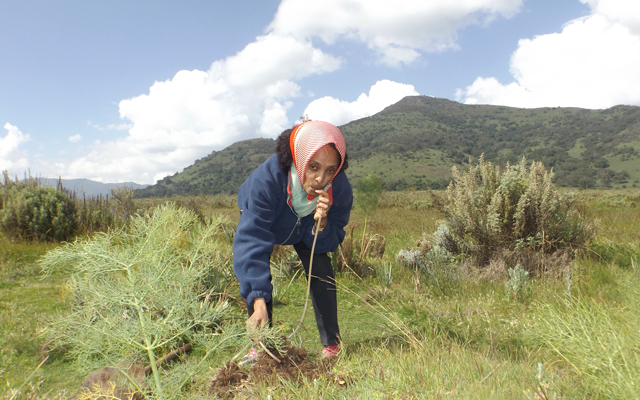 Many TWAS awardees have built influential careers and today hold high-level international positions. Others are directors of research at major laboratories. Ismunandar, a native of Indonesia and a 2012 TWAS Prize winner, is now Education and Culture Attaché at the Indonesian Embassy in Washington. Eugenia Maria del Pino Veintimilla is a TWAS Fellow and a co-founder of the Academy of Sciences of Ecuador. Balakrishna Pisupati is the head of Biodiversity, Land and Governance Programme for the United Nations Environment Programme (UNEP), based in Kenya.
Many TWAS awardees have built influential careers and today hold high-level international positions. Others are directors of research at major laboratories. Ismunandar, a native of Indonesia and a 2012 TWAS Prize winner, is now Education and Culture Attaché at the Indonesian Embassy in Washington. Eugenia Maria del Pino Veintimilla is a TWAS Fellow and a co-founder of the Academy of Sciences of Ecuador. Balakrishna Pisupati is the head of Biodiversity, Land and Governance Programme for the United Nations Environment Programme (UNEP), based in Kenya.
A separate grant programme, funded by COMSTECH and TWAS, is open to young scientists from member countries of the Organization of Islamic Cooperation (OIC).
The grants are highly competitive; applications are reviewed by a panel of expert evaluators who approve the projects. The process helps to support some of the most talented minds in science-lagging countries, helping to build their laboratories while preventing the discouragement that can result from lack of resources.
The Trieste event has been organized by TWAS research grants staff member Payal Patel and received the support from TWAS Programmes Coordinator Max Paoli. It will offer an insight into the benefits of the TWAS research grants programme to bridge the north-south divide: giving a boast to science in developing countries has knock-on effects on other areas of key societal importance such as education and policy making. By reinforcing and promoting science in developing countries, TWAS is strengthening individual capacities, ultimately building a better future in which researchers in those nations can help solve critical challenges.
Cristina Serra
You can follow the event on Twitter using the hashtag #TWASgrants.


